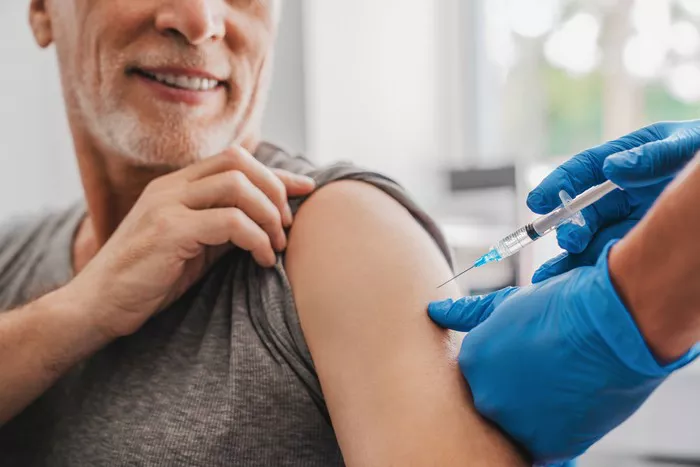Results from a comprehensive study on the efficacy of bimekizumab in patients with moderate to severe plaque psoriasis reveal sustained health-related quality of life (HRQoL) and clinical responses over a 4-year period. Presented at the SDPA Annual Summer Dermatology Conference, the findings underscored rapid and enduring improvements achieved among participants enrolled in the open-label extension trial.
Led by Dr. Bruce Strober and his team from Yale University School of Medicine, the study highlighted that bimekizumab, an IgG1 monoclonal antibody targeting interleukin (IL)-17F and IL-17A, exhibited superior efficacy compared to existing treatments such as ustekinumab, adalimumab, and secukinumab.
The investigation pooled data from the BE VIVID, BE SURE, BE READY trials, and the BE BRIGHT open-label extension (week 144) to assess bimekizumab’s long-term efficacy across a substantial cohort of patients. Participants were initially randomized to receive bimekizumab 320 mg every 4 weeks (Q4W), followed by a maintenance phase with options for Q4W or every 8 weeks (Q8W) dosing.
Key outcomes included the proportion of patients achieving ≥90%/100% improvement from baseline in Psoriasis Area and Severity Index (PASI 90/PASI 100), body surface area (BSA) ≤1%, Dermatology Life Quality Index (DLQI) 0/1, and PASI ≤ 2. The study employed rigorous methodologies like modified non-responder imputation (mNRI) and multiple imputation to handle missing data and ensure robustness in the analysis.
Among the 771 patients treated with bimekizumab over 4 years, significant proportions achieved PASI 90 (90.9%), PASI 100 (65.8%), and PASI ≤ 2 (91.7%) at week 16. Notably, durable responses persisted throughout the study period, with 86.1% maintaining PASI 90, 64.7% achieving PASI 100, and 86.4% achieving PASI ≤ 2 at year 4. Moreover, substantial percentages maintained BSA ≤ 1% (79.8%) and DLQI 0/1 (78.7%) at the same timepoint.
In a subset analysis focusing on participants consistently receiving Q4W or Q8W dosing throughout the study phases, robust efficacy was sustained with 88.0% achieving PASI 90, 72.6% achieving PASI 100, 89.2% maintaining PASI ≤ 2, and high rates of BSA ≤ 1% (83.2%) and DLQI 0/1 (83.3%) at year 4.
Dr. Strober emphasized the importance of assessing long-term treatment efficacy in chronic diseases like psoriasis, noting that bimekizumab’s performance underscores its potential as a preferred therapeutic option. The study contributes valuable insights into the sustained benefits of bimekizumab in managing moderate to severe plaque psoriasis, supported by robust clinical evidence spanning 4 years of observation.
This study not only reaffirms the efficacy of bimekizumab but also provides clinicians and patients with confidence in its long-term benefits in managing plaque psoriasis, offering hope for improved quality of life and treatment outcomes.
Related Topics:

























